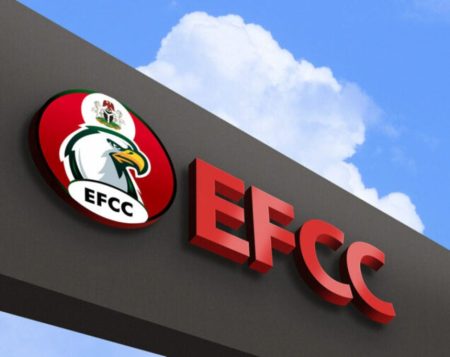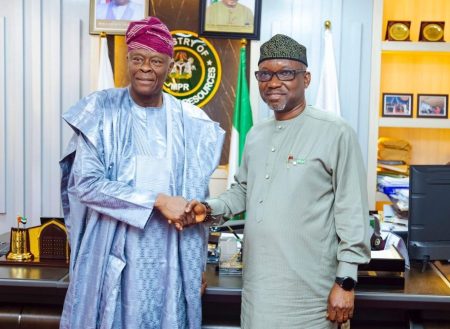
Port Harcourt — Nigeria is oil and oil is Nigeria. No doubt about it. As Africa’s top producer and the world’s 11th largest pumper of crude oil, Nigeria is in a vantage position to make news in the continental and international arenas. It did so this week when the Nigerian Upstream Petroleum and Regulatory Commission (NUPRC) which replaced the Department of Petroleum Resources in the aftermath of the reforms by Petroleum Industry Act (PIA,) said it planned to revoke oil exploration leases that had been lying dormant since they were granted. The leasees include Nigerian and international oil companies. “Based on the PIA, the commission is focused on delivering value for the nation so only firms that are technically and financially viable will keep their leases,” NUPRC Chief Executive Officer, Gbenga Komolafe said. The definition of “technical and financial viability” simply means companies that are making efforts to explore or produce oil or gas in their leases.
Data from the NUPRC indicates that some 53 exploration leases were issued from 2003 till date, of which over 60 per cent, that is around 33 have expired. The Commission is no longer in the mood to allow these leases to gather dust on the shelves of these local and foreign firms and wants to re-award them “subject to specific terms and conditions.” The PIA which was enacted in August 2021 empowers the NUPRC to assess the technical and financial status of leases so the body is perfectly within its legal remit.
On the face of it, the matter looks simple and straightforward. If a company is awarded an oil lease, it should take steps to explore and produce and add to Nigeria’s overall production and enable the country to earn more money to finance development. The operator will also earn money. So where is the complication? This is an important question the NUPRC and Nigerians should ask because the companies we are talking about are not a dozen-a-dime operators. One of them, TotalEergies, was ranked the 6th biggest oil company in the world as of May this year. If a Supermajor won’t have money to do its 9-to-5 business, who would? It must be one of two reasons: The field is a marginal producer in which case the company decides it does not make commercial sense to develop it. The second reason may have to do with circumstances beyond the operator’s control: Insecurity. The NUPRC may find it easier to deal with the first case but the second one is quite serious and goes beyond just cancelling an idle lease because a new operator will face the same challenge.
All is not well with Nigeria or its oil industry. Nigeria’s current oil production comes from 323 onshore and offshore fields. Investments in the sector have suffered as IOCs abandon onshore and shallow water assets due to increasing insecurity and sabotage of oil assets. The Niger Delta which is the hub of oil exploration activities has seen armed gangs and cult groups operate with impunity with the 31 million inhabitants of the region held as collective hostages. The story is the same with crude oil theft. Last year, the Nigeria Extractive Industries Transparency Initiative (NEITI) reported that “Nigeria lost a total of 619.7 million barrels of crude oil valued at $46.16 billion or N16.25 trillion to crude oil theft between 2009 to 2020.”
In October this year, the Nigerian National Petroleum Company Limited (NNPCL) gave a sense of the scale of the challenge when it confirmed 149 crude theft incidents in just one week. These are not small boys looking for peanuts. NNPCL disclosed that, in one camp in Imo State, “CCTV cameras have been installed on trees by the thieves to look out for security operatives. Mortar launchers and defence systems were also mounted by the oil thieves in various locations to eliminate any perceived enemy.” In another camp in Rivers State, crude oil thieves used “a horizontal directional drilling machine” to construct a “tunnel underneath the tarred road to insert their illegal connection.”
Given these dire conditions it will take a deaf, dumb and blind operator to invest their hard-earned money in an oil lease and we know oil people are neither of these. This is why the Federal Government must talk and act seriously when it comes to operating conditions in the Niger Delta. Indeed, the challenge in the Delta is two-fold: Poverty and criminality. The efforts by government at all levels, federal, state and local to develop the oil bearing region must be matched by law enforcement. We must have a safety net to catch the poor and the law to deal with criminals.
Nigeria needs no further justification to get it right in oil. After days of intense negotiations, the 36th Organisation of Petroleum Exporting Countries (OPEC) and non-OPEC ministerial meeting agreed to increase Nigeria’s oil production quota in 2024 to 1.5 million barrels per day from the current 1.38 million. The figure falls short of President Bola Tinubu’s forecast of 1.78 million barrels per day in the 2024 budget. Nigeria currently produces 1.5 million bpd of crude. Although Nigeria produces an additional 300,000 bpd of condensate which is not subject to OPEC quota restrictions, the country has not been able to meet its OPEC quota for the past three years with ominous implications for the future. Nigeria needs more money; Nigeria needs to produce more oil; Nigeria needs to work more to realise its oil dreams. We should not be content with revoking dormant licenses; we must understand why leases stay idle. This will help us to determine an operator who is not working by choice or not working by force.



